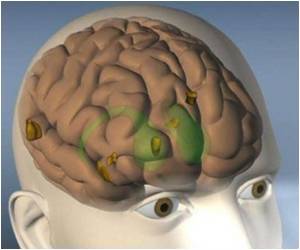Elon Musk's Neuralink implants chip in the human brain, marking a pivotal step in brain-computer interface technology.
- Elon Musk's Neuralink achieves first-ever human brain implant with promising results
- The implant, named Telepathy, targets users with limb loss, envisioning groundbreaking communication capabilities
- Despite challenges and scrutiny, Neuralink advances toward regulatory approval and broader accessibility
An Integrated Brain-Machine Interface Platform With Thousands of Channels
Go to source). This announcement potentially indicates a significant breakthrough for Neuralink's endeavors to transition technology from the laboratory to practical applications. However, Musk's disclosure lacks specific details, leaving uncertainty regarding the extent of the scientific advancement achieved through the implantation.
Musk, who is both the world's wealthiest individual and the founder of Neuralink, conveyed on X, his social media platform, that early findings indicate promising detection of neuron spikes.
The Promise of Telepathy: Restoring Communication Through Neuralink
Moreover, Musk shared that Neuralink's inaugural product will be named Telepathy, with initial users being individuals who have lost limb functionality. He envisioned individuals like Stephen Hawking communicating at speeds surpassing those of proficient typists or auctioneers.Neuralink has dedicated years to developing implants designed to establish a connection between the human brain and computers. However, the company faced criticism following the death of a monkey in 2022 during an attempt to engage the animal in Pong, one of the first video games. Reports in December 2022 suggested that the company's rush to market led to negligent animal fatalities and a federal inquiry.
In May of the previous year, Neuralink secured FDA clearance for human clinical trials. Subsequently, the startup commenced recruitment of patients with quadriplegia due to cervical spinal cord injuries or amyotrophic lateral sclerosis (ALS).
The ongoing trial, part of Neuralink's "PRIME Study," aims to evaluate the safety of its implant and surgical robot while assessing the functionality of its device. Participants in the trial undergo surgical placement of a chip in the brain region responsible for movement intentions. The chip, installed by a robot, records and transmits brain signals to an application, initially enabling individuals to control a computer cursor or keyboard using their thoughts alone.
Challenges and Progress: The Journey Towards Brain-Computer Interface Accessibility
Prior to the broader market release of Neuralink's brain implants, regulatory approval is imperative. In 2021, the FDA released a document outlining its preliminary perspectives on brain-computer interface devices, acknowledging the rapid progress in the field.Tara Spires-Jones, president of the British Neuroscience Association, emphasized the potential of brain-nervous system interfaces to aid individuals with neurological disorders in the future. However, she noted that most of these interfaces necessitate invasive neurosurgery and are still in experimental stages, indicating that it may be several years before they become widely accessible.
Reference:
- An Integrated Brain-Machine Interface Platform With Thousands of Channels - (https://pubmed.ncbi.nlm.nih.gov/31642810/)
Source-Medindia













